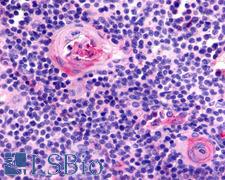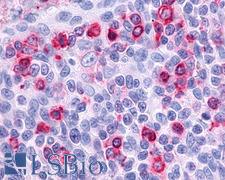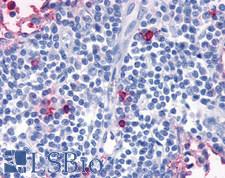Login
Registration enables users to use special features of this website, such as past
order histories, retained contact details for faster checkout, review submissions, and special promotions.
order histories, retained contact details for faster checkout, review submissions, and special promotions.
Forgot password?
Registration enables users to use special features of this website, such as past
order histories, retained contact details for faster checkout, review submissions, and special promotions.
order histories, retained contact details for faster checkout, review submissions, and special promotions.
Quick Order
Products
Antibodies
ELISA and Assay Kits
Research Areas
Infectious Disease
Resources
Purchasing
Reference Material
Contact Us
Location
Corporate Headquarters
Vector Laboratories, Inc.
6737 Mowry Ave
Newark, CA 94560
United States
Telephone Numbers
Customer Service: (800) 227-6666 / (650) 697-3600
Contact Us
Additional Contact Details
Login
Registration enables users to use special features of this website, such as past
order histories, retained contact details for faster checkout, review submissions, and special promotions.
order histories, retained contact details for faster checkout, review submissions, and special promotions.
Forgot password?
Registration enables users to use special features of this website, such as past
order histories, retained contact details for faster checkout, review submissions, and special promotions.
order histories, retained contact details for faster checkout, review submissions, and special promotions.
Quick Order
PathPlusTM CCR7 Antibodies
Chemokine (C-C motif) receptor 7 (CCR7) is involved in lymphocyte recirculation through secondary lymphoid organs and moving lymphocytes and dendritic cells into distinct tissue compartments. CCR7 is called the Epstein-Barr-induced receptor because it mediates Epstein-Barr viral effects on B lymphocytes. CCR7 expression is up-regulated in mature dendritic cells, B cells infected with EBV, and in CD4+ cells infected with human herpes virus 6 and 7. Immature dendritic cells have been shown to express chemokine receptor 5 (CCR5) and migrate in response to macrophage inflammatory protein-1alpha (MIP-1alpha), whereas mature dendritic cells switch to CCR7 expression and respond exclusively to MIP-3beta and 6Ckine. Maturing dendritic cells upregulate CCR7, which drives their migration to the T-cell areas of the draining lymph nodes where antigen is presented to naive T cells.
References: The UniProt Consortium. Nucleic Acids Res. 47: D506-515 (2019); Nucleic Acids Res. 2016 Jan 4;44(D1):D733-45, PMID:26553804
3 PathPlusTM Antibodies



☰ Filters
Products
Antibodies
(3)
Type
Primary
(3)
Target
CCR7
(3)
Reactivity
Human
(3)
Bovine
(1)
Monkey
(1)
Application
IHC
(3)
IHC-P
(3)
Host
rabbit
(3)
Product Group
GPCR Database Antibodies
(3)
PathPlus Neuro
(3)
Clonality
polyclonal pc
(3)
Format
Unconjugated
(3)
Epitope
C-Terminus
(1)
Extracellular Domain
(1)
N-Terminus
(1)
Publications
No
(3)

Neuroscience
Fast Shipping
CCR7 Rabbit anti-Human Polyclonal (C-Terminus) Antibody
Bovine, Human, Monkey
IHC, IHC-P
Unconjugated
50 µg/$395

Neuroscience
Fast Shipping
CCR7 Rabbit anti-Human Polyclonal (N-Terminus) Antibody
Human
IHC, IHC-P
Unconjugated
50 µg/$460

Neuroscience
Fast Shipping
CCR7 Rabbit anti-Human Polyclonal (Extracellular Domain) Antibody
Human
IHC, IHC-P
Unconjugated
50 µg/$440
Viewing 1-3
of 3
product results











